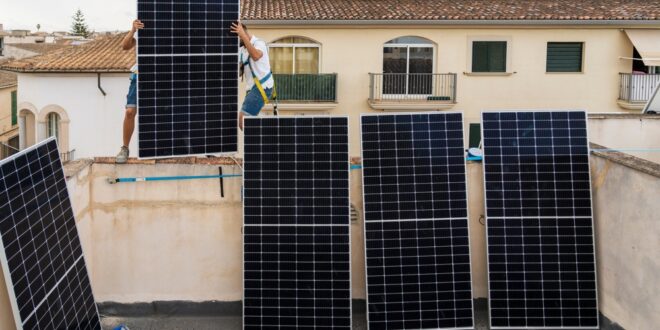Photo:| Photo:
Tolobalaguer / Shutterstocktock
While millions of people in Spain, Portugal and parts of France were without electricity for several hours, you’d expect those with solar panels to be reading books, charging their electric vehicles, playing videogames and not worry about perishables stored in their refrigerator.
Not exactly. People still don’t understand what happens in a blackout such as the one that occurred on Monday.
In Spain, the problem is that solar panels are more than likely connected to a state-owned energy grid. Most homes that have solar panels have inverters connected to the grid. This means they will automatically shut down during a blackout.
Although solar systems with battery backup can still function in a blackout regardless of the extent or duration of it, they may fail under certain conditions.
Why solar systems may fail in a blackout
- If your batteries are completely depleted or you don’t have sufficient electricity storage capacity
- The solar inverter cannot be used independently of the grid
- Inverters and Batteries can fail if they are not properly maintained or not working correctly.
- Extreme weather conditions can damage solar panels
Blackouts can affect solar systems with batteries
Batteries provide greater independence for solar systems from the local grid or national energy grid. Batteries can store enough energy to keep lights and fridges running for several days or even weeks.
But experts advise that you use the solar electricity wisely because it is impossible to predict how long there will be a blackout.
Installing solar panels is a good idea, especially after a recent nationwide blackout in Spain. Make sure your system is totally independent of the grid, and the storage capacity you have installed is enough to last a few days. Do not forget to perform regular maintenance.
 Costa News Spain Breaking News | English News in Spain.
Costa News Spain Breaking News | English News in Spain.





